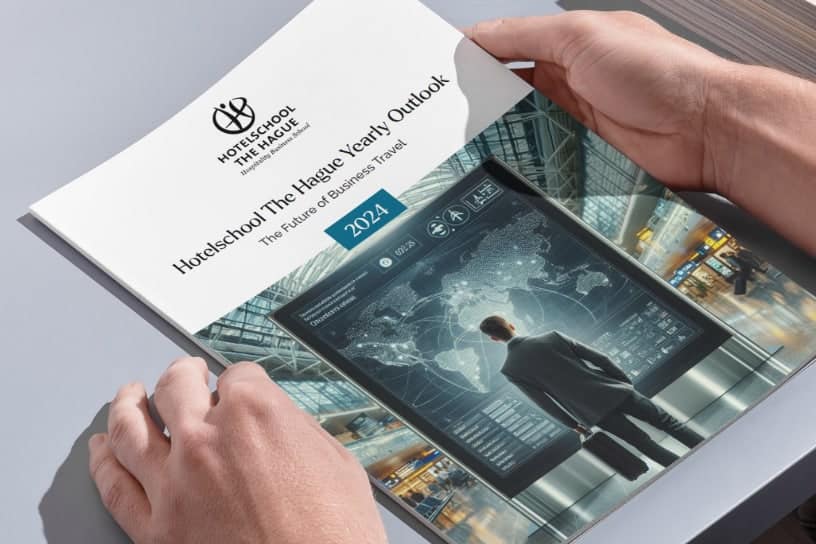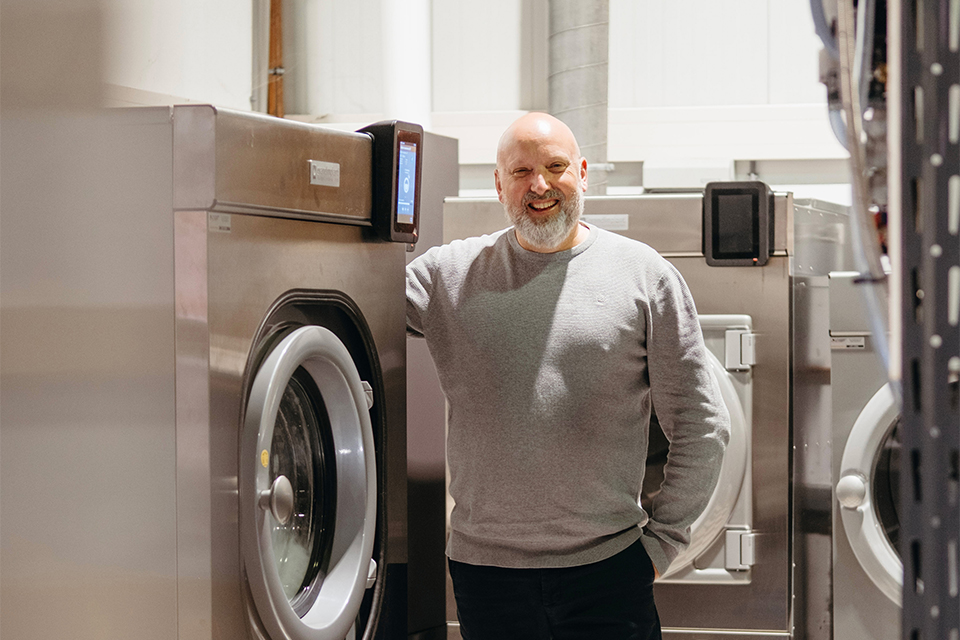
Hotelschool The Hague: 13% fewer business travellers to Amsterdam - but they stay 16% longer
Hotel School The Hague reports full recovery of international business travel
Hotelschool The Hague presents findings from its first Yearly Outlook report, which shows that international business travel will have fully recovered by 2024, with an increase of 2% over pre-pandemic figures. This recovery marks a major milestone for the global hospitality industry and is accompanied by key trends such as longer stays, changing accommodation preferences, and the emergence of sustainable innovations and technologies. The report, written by Jeroen Oskam, director of the school's Research Centre, offers strategic insights for industry executives navigating this new phase, driven by the latest developments in international business travel.
With this, the school launches a new series of Yearly Outlook studies. This highly anticipated report provides the international hospitality industry and hospitality professionals with essential insights into emerging trends and developments, with a special focus on the future of international business travel. Business travellers play a crucial role within the tourism industry, contributing significantly to international travel, global GDP and corporate revenues.
In light of recent disruptions and challenges, this research not only focuses on the past, but also looks at future developments and uncertainties within the business travel industry. In doing so, the report provides strategic insights that can support executives and policymakers in navigating the ever-changing landscape.
Key findings from the Yearly Outlook report include:
Recovery from international travel: By 2024, international business traveller arrivals have increased by 2% compared to 2019, indicating a full recovery of the sector. In Amsterdam, there was a 13% drop in the number of business travellers, but this was offset by an increase in the average length of stay from 2.34 to 2.71 days. In addition, more business travellers chose 3-star accommodations, indicating a change in preferences.
Future of business travel: The report outlines a scenario in which business travel will make sustainable and personalised business travel experiences the norm by 2035. This future is driven by the integration of AI, changes in travel patterns-such as an increase in short-haul travel and longer stays that combine work and leisure-and a growing focus on sustainability.
Potential disruptions: The study also analyses possible potential disruptions to these trends, including socio-political shifts that could undermine sustainability efforts, risks from AI-assisted travel, the decline of less attractive business destinations and the impact of global geopolitical tensions.
The Yearly Outlook study offers concrete recommendations for hospitality professionals and policymakers in the tourism sector. These focus on building resilience, anticipating changing preferences of business travellers, leveraging AI and technological innovations, and promoting sustainable innovations in the sector.
"With this report, we aim to provide our industry partners with up-to-date, relevant and strategic insights into the future of business travel," said Jeroen Oskam, director of the Research Centre at Hotelschool The Hague. "We are convinced that this knowledge will enable industry leaders to prepare for the challenges and opportunities the future holds."
Jeroen Oskam, Director Research Centre Hotelschool The Hague
For more information or to read the Annual Outlook report, click HERE or go to www.hotelschool.nl/yearly-outlook



